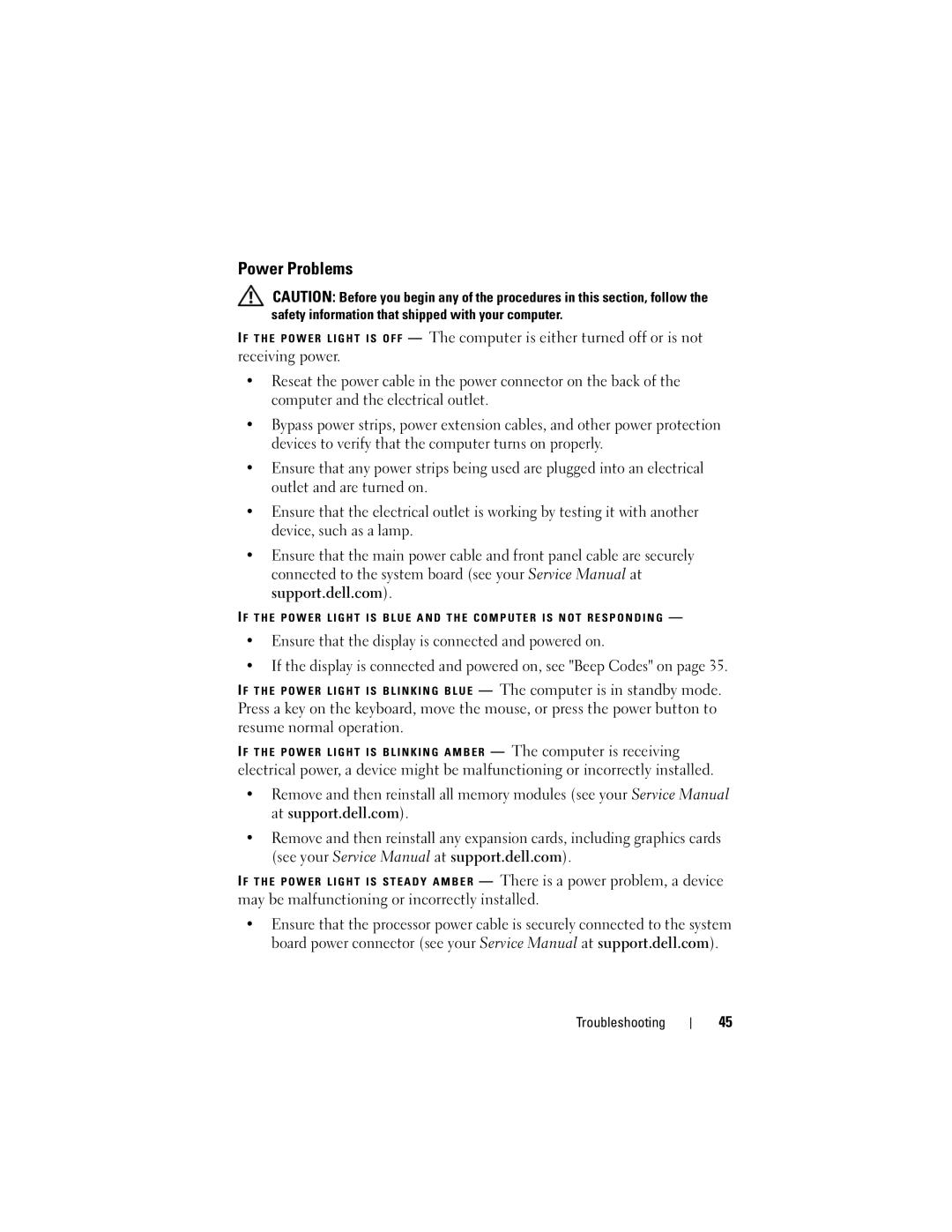
Power Problems
CAUTION: Before you begin any of the procedures in this section, follow the safety information that shipped with your computer.
I F THE POWER LIGHT IS OFF — The computer is either turned off or is not receiving power.
•Reseat the power cable in the power connector on the back of the computer and the electrical outlet.
•Bypass power strips, power extension cables, and other power protection devices to verify that the computer turns on properly.
•Ensure that any power strips being used are plugged into an electrical outlet and are turned on.
•Ensure that the electrical outlet is working by testing it with another device, such as a lamp.
•Ensure that the main power cable and front panel cable are securely connected to the system board (see your Service Manual at support.dell.com).
I F THE POWER LIGHT IS BLUE AND THE COMPUTER IS NOT RESPONDING —
•Ensure that the display is connected and powered on.
•If the display is connected and powered on, see "Beep Codes" on page 35.
I F THE POWER LIGHT IS BLINKING BLUE — The computer is in standby mode.
Press a key on the keyboard, move the mouse, or press the power button to resume normal operation.
I F THE POWER LIGHT IS BLINKING AMBER — The computer is receiving
electrical power, a device might be malfunctioning or incorrectly installed.
•Remove and then reinstall all memory modules (see your Service Manual at support.dell.com).
•Remove and then reinstall any expansion cards, including graphics cards (see your Service Manual at support.dell.com).
I F THE POWER LIGHT IS STEADY AMBER — There is a power problem, a device may be malfunctioning or incorrectly installed.
•Ensure that the processor power cable is securely connected to the system board power connector (see your Service Manual at support.dell.com).
Troubleshooting
45
